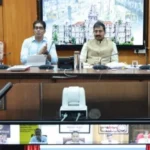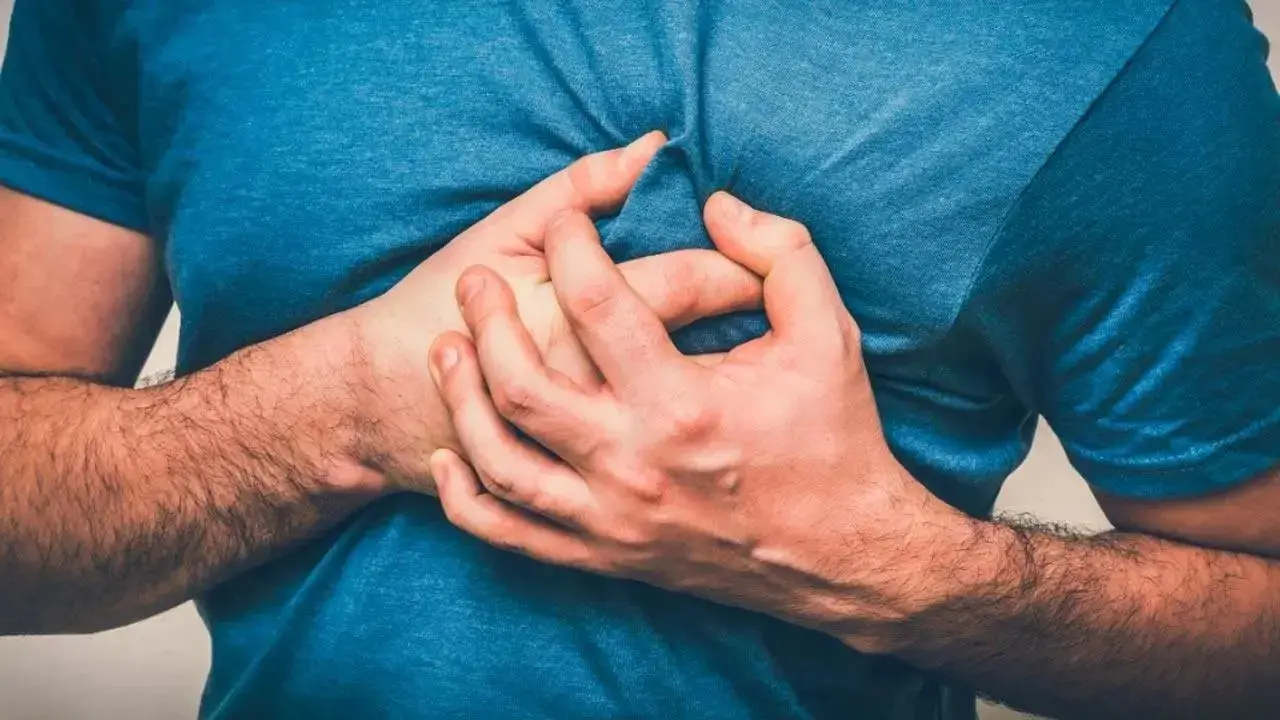In a world that seems to spin ever faster, a silent crisis is taking hold: stress has become one of the biggest threats to heart health for millions of Indians today. While we meticulously monitor cholesterol and sugar levels, the profound and often unseen role of stress quietly damages our bodies.
Dr Sameer Pagad, director – intervention cardiology, Nanavati Max Super Speciality Hospital, Mumbai, explains, “Patients often ask whether stress can truly ‘damage’ the heart. The available evidence and observational data leave no doubt about this connection. The brain and heart are deeply connected, and stress, whether sudden or long-lasting, can have direct impact on our cardiovascular health. Acute emotional stress, such as a sudden shock, anger, or grief, can set off a chain reaction in the body.”
“Our hospitals are now seeing a new patient demographic—young professionals, homemakers, entrepreneurs, and even students—all battling rising blood pressure, chest pain, and palpitations, often without classic risk factors. While we discuss cholesterol and sugar levels, the silent role of stress often goes unnoticed,” says Dr G Vivek, consultant-cardiology, Manipal Hospital Kanakapura Road, Bengaluru.
This World Heart Day, doctors delve into the intricate relationship between our minds and hearts, exploring how psychological pressure translates into a real, physical threat and what we can do to manage it.
The unseen impact of stress
In India, stress wears many faces—work targets, board exams, family expectations, and the constant tug-of-war between modern life and tradition. “What most people don`t realise is that these pressures are not just all in the mind. When we are under stress, the body releases hormones like adrenaline and cortisol. These hormones increase heart rate and blood pressure, which is temporarily helpful but dangerous if they remain elevated for weeks or months,” says Dr Vivek.
Dr Pagad adds, “The brain and heart are deeply connected, and stress, whether sudden or long-lasting, can have a direct impact on our cardiovascular health. The repeated activation of the nervous system wears down the cardiovascular system.” Stress harms the fine lining of our blood vessels, encourages blockages, and sets off inflammation, which increases the risk of heart attacks, strokes, and even sudden cardiac death. “Every cardiologist in India has stories of relatively young and otherwise healthy patients who landed in the emergency room after a particularly stressful phase,” adds Dr Vivek.
What happens inside: The physiology of stress and heart disease
“To understand this better, imagine stress as a spark that activates the brain. The amygdala, hippocampus, and prefrontal cortex send signals that trigger the autonomic nervous system and the hypothalamic–pituitary–adrenal axis, unleashing stress hormones. Adrenaline raises heart rate and blood pressure. Cortisol alters sugar and fat metabolism, making blood more prone to clotting. Together, they can stiffen arteries, promote plaque rupture, and inflame vessel walls,” Dr Pagad explains. This outlines why stress is not just a feeling in the mind—it`s a biological state that can shape the course of heart disease.
Acute versus chronic stress
“Acute emotional stress, such as a sudden shock or grief, can trigger a “fight or flight” response, releasing a surge of hormones that cause the heart to beat faster and blood pressure to rise sharply. This can narrow blood vessels and disturb heart rhythms. A well-documented condition, known as stress-induced cardiomyopathy or ‘broken heart syndrome,’ is a striking example of how sudden emotional turmoil can lead to acute heart failure,” says Dr Pagad.
If short-term stress jolts the heart, long-term stress quietly erodes it. Chronic stress, from sources like work pressure or financial worries, keeps the body in a constant state of alert. Dr Pagad notes, “Prolonged stress can cause persistent high blood pressure, damaging arteries increase inflammation in blood vessels and reduce the body’s ability to repair vascular injury.”
How to clinically assess stress effects on the heart
“In practice, we do not rely only on what patients tell us about their stress,” reveals Dr Pagad. Today, several tools help doctors see the impact of stress on the heart:
Heart rate variability (HRV): A simple ECG-based measure that reflects how well the nervous system is balancing stress and relaxation. Lower HRV often signals
higher cardiovascular risk.
Stress testing: Beyond treadmill tests, some labs use mental stress tasks (like solving arithmetic under pressure) while monitoring heart blood flow. This reveals “silent” stress-induced ischemia that might not appear otherwise.
Inflammatory markers: Blood tests measuring substances like interleukin-6 rise after stress and have been linked to worse cardiac outcomes, especially in women.
These tests, though not routine for everyone, are invaluable for high-risk patients, as per Dr Pagad.
The wrong ways to cope
One reason stress is so harmful is the way we try to cope with it. “Across India, common patterns include late-night eating, smoking, skipping daily walks, and withdrawing from social circles. Some even turn to ‘stress busters’ like strong chai or endless coffee, which only worsen blood pressure and increase heart workload. Traditional habits meant to bring balance, often take a back seat to the rat race,” notes Dr Vivek.
Early warning signs
Dr Pagad tells us that patients often ask him, how do they know if stress is hurting their hearts. “While symptoms vary, warning signs include episodes of chest discomfort or palpitations triggered by emotional upheaval, unexplained fatigue, poor sleep, and a feeling of breathlessness not linked to exertion. If such patterns repeat, they deserve medical evaluation. Many of these signs are subtle in women and younger individuals, who might dismiss them as `just stress` until a serious event occurs,” he cautions.
Managing stress: what works
Many sources of stress are here to stay—at least for now. An aging parent, a difficult boss, or financial responsibilities won`t disappear overnight. But while we can`t always change our circumstances, we can learn to change our response.
Heart care is about more than just medicine and surgery. What you do outside the hospital is just as important. While stress is a fact of life, how you respond to it can be your best defence for protecting your heart. Both doctors emphasise a few key strategies:
Simple breathing and meditation: Even a few minutes of “pranayama” or mindful breathing can calm the mind and bring down blood pressure.
Move every day: Whether a brisk walk in your colony, a few rounds around the office parking lot, or some light stretches on your balcony—it all counts.
Prioritise family meals: Eating home-cooked sambar -rice or sabzi-roti with family reduces both stress and unhealthy food choices.
Respect sleep: Adequate sleep: Irregular sleep is a major culprit for heart disease. Prioritising 7 to 8 hours of restful sleep is one of the simplest yet most effective heart-protective steps.
Set boundaries with work: Learn to disconnect from emails and messages after work hours.
Stay social: Social connections are one of our biggest assets against stress.
Rethink “stress busters”: Instead of one more cigarette or coffee, try reading, gardening, or listening to music.
A holistic approach to heart health
Our healthcare system is evolving. Today, cardiac care teams include dietitians, psychologists, and yoga instructors alongside doctors. “It is increasingly clear that unless we address stress, even the best medications cannot fully protect patients,” says Dr Pagad.
It’s true that many sources of stress cannot be changed overnight, but we can learn to respond differently. “Make time for yourself, seek support, ask for professional help if you feel overwhelmed,” Dr Vivek advises.
In India, we are proud of our resilience, but silent suffering is not a virtue when it comes to heart health. “Medicines and angioplasty can save lives in emergencies, but it is daily habits, that keep the heart strong for decades. No amount of success at work is worth risking a heart attack at 45. Let’s remember, our mind and heart are deeply connected. Take care of both, with wisdom, discipline, and a little help from the people around you,” concludes Dr Vivek.











